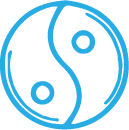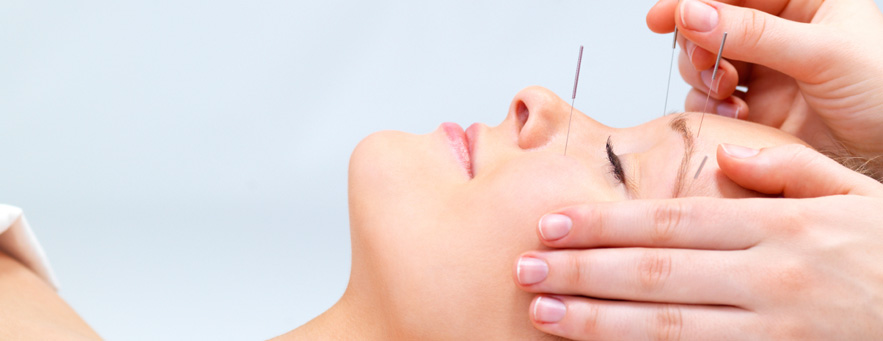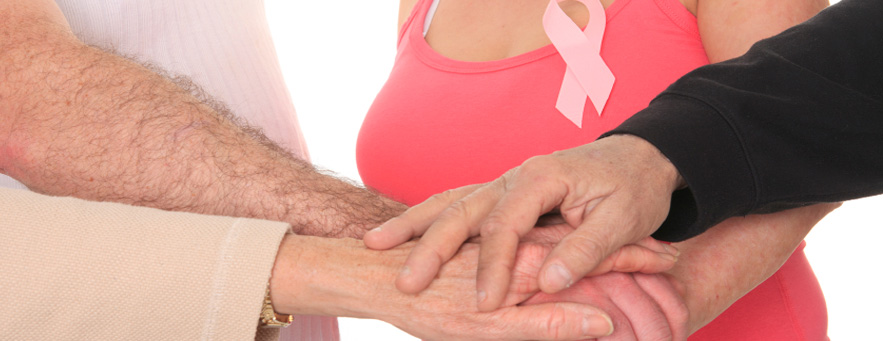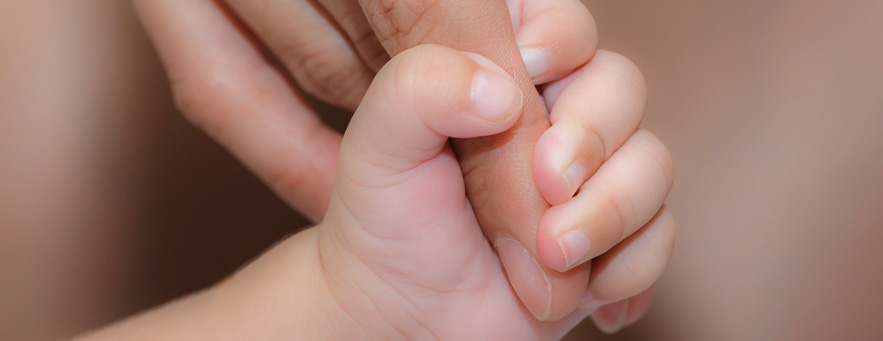
Acupuncture Blog
LATEST INFORMATION
Useful information and recommendations based on our experiences and years in the acupuncture and wellness field.
January 15, 2020

WHY THERMOGRAPHY?
Know the Facts About Thermography
Fast Facts on Breast Thermography
- In 1982, the FDA approved breast thermography as an adjunct diagnostic breast cancer screening procedure.
- Breast thermography has an average sensitivity and specificity of 90%
- An abnormal thermogram is 10 times more significant as a future risk indicator for breast cancer than a first order family history
- A persistent abnormal thermogram carries with it a 22x higher risk of future breast cancer.
- The size of the studies are very large up to 85 thousand participants and studies have followed participants up to 12 years.
- Extensive clinical trials have shown that breast thermography significantly augments the long term survival rates of its recipients by as much as 61%
- When used as a multimodal approach (clinical exam +mammography+thermography), 95% of early stage cancers will be detected.
How is thermography different?
Thermography does not see cancer. It’s too late by the time it can be “seen.” Cancer spends the huge majority of its life as a microscopic organism. Thermography has the unique ability to safely and reliably capture the metabolic energy created by the processes supporting the growing colony for all those years. What an opportunity to interrupt the process that supports the disease!
Additional Uses for Thermography
- Cardio-Vascular monitoring
- Pain Management
- General Health Screening and Monitoring
December 15, 2019

Top Reasons to Try Acupuncture
If you still haven’t tried acupuncture and are curious whether it’s worth your time and money, here are five encouraging reasons to give it a chance:
- Your Side Effects are Awesome: You may go to acupuncture to cure your neck and shoulder pain, and find that the pain diminishes. Meanwhile, your stress level, sleep quality, digestion, and overall mood improve too.
- It gets to the root: Acupuncture treatments are deeply healing because they focus not only on the patient’s current condition, but investigate why their symptoms are manifesting and aim to treat the underlying root cause.
- It works: Acupuncture has been around since before recorded history. The earliest written record comes from a few hundred years before the common era. If it didn’t work, it certainly wouldn’t have lasted thousands of years and spread through hundreds of Asian medical lineages. Scientists try to understand how acupuncture works from a biomedical perspective. Some refer to its effects on fascia, the connective tissue that surrounds all our muscles and organs. Some point to acupuncture’s ability to stimulate the limbic system and autonomic nervous system. Some scientists claim in their studies that acupuncture is sometimes as effective as “sham acupuncture.” While they attempt to fit a versatile and non-linear medicine into a formulaic model with double-blind studies, the clinical experience of everyday practitioners and patients agrees with thousands of years of history — acupuncture works!
- It’s personalized healthcare: No two acupuncture patients receive the same treatment for the same disease or discomfort. Acupuncturists treat patients, not diseases. They are trained to take in every detail of you, from the sound of your voice to the quality of your skin to the sparkle in your eyes. They care about your whole story, past and present. They see your body as a network of interdependent parts: muscle, bone, fascia, organs, blood and body fluids, as well as more subtle layers like meridians and qi. They see what is deficient and what is stuck, mentally as well as physically, and make adjustments like a traffic cop, facilitating the body’s own healing ability.
- It’s nothing to be afraid of: Sure, you may feel the needles and their immediate effects, but you needn’t be anxious. If you’re suffering aches and pains on a daily basis, that chronic pain far outweighs any momentary mini pinch of a hair-thin sterile acupuncture needle.
November 15, 2019

Cancer Therapy: Are you making the right choices?
There’s more to cancer care than ridding the body of cancer cells. Equally important is the goal of maintaining quality of life while undergoing treatment. Staying strong enough to fight the disease and maintain work and family routines during treatment should be part of any cancer care program. That’s why patients should be offered integrative therapies to supplement conventional surgical, radiation and chemotherapy treatments.
Know your options:
Every cancer and every cancer patient is different. So different combinations of both traditional and integrative oncology therapies should be customized for every treatment plan. It’s important to work with a knowledgeable oncology team to understand your options, how they work, and be sure that they’re offered at your treatment center.
What exactly is integrative care?
Treatments for cancer typically consist of some combination of surgery, chemotherapy and radiation. The combination of these treatment options with therapies designed to maintain quality of life during treatment is what is known as an integrative approach to cancer care. Therapies to improve energy and maintain the immune system during treatment, manage fatigue and guard against malnutrition are all critical. And the more therapeutic choices you have, the better you’ll be able to customize a treatment plan that’s right for you. These integrative therapies may include nutritional counseling, naturopathic medicine, physical therapy, chiropractic care, acupuncture, mind-body therapy, meditation and spiritual support. Patients should consider all of these when choosing a hospital and approving a treatment plan.
Naturopathic medicine:
Naturopathic care should also be considered. This can include a referral to acupuncture, lifestyle counseling and also natural non-toxic therapies — herbal and botanical preparations, vitamins, minerals, amino acids, homeopathic plant extracts, etc. — that help manage symptoms and encourage healing. Naturopathic clinicians address a variety of conditions associated with cancer including digestive issues, nerve damage, respiratory conditions and cancer- related fatigue. And your naturopathic clinician should have extensive knowledge of radiation therapy and chemotherapy, plus a comprehensive understanding of the treatments you’re undergoing to ensure the right supplements are part of your treatment plan.
Supported Content: Cancer Treatment Centers of America
September 15, 2019

ACUPUNCTURE AND INFERTILITY
- Promotes blood circulation in the pelvic cavity, consequently improving the functioning of the ovaries.
- Improves the flow of blood to the ovaries stimulating follicular production.
- Increases the blood flow to the uterus that thickens the wall of the endometrium and facilitates the implantation of the embryo in case of In Vitro fertilization
- Reduces the risk of abortion because it strengthens the wall of the uterus which allows you to absorb better nutrients and hormones needed to sustain the embryo implanted in the case of In Vitro fertilization.
- Helps with the side effects of hormone treatments in case of being necessary to increase fertility
- Reduces stress
- Regulates the menstrual cycle
- Helps regulate hormones not in a direct way but it stimulates hormonal regulation in the brain and autonomic nervous system centers.
- In women older than 40 stimulates health in general including reproductive capacity although it is not possible to check it, it is quite noticeable that it reduces the effect of biological age.
- Significantly improves the concentration of sperm and their mobility. If you consider the need for In-Vitro fertilization is very important to start with acupuncture treatments at least 3 months before carrying out the procedure since the sperm takes 70 days to generate.
Research and development:
In recent years the number of studies related to infertility and the way in which acupuncture benefits has increased:- In 2002 in Germany acupuncture treatments were given to a group of patients before and after implanting the embryo through in-vitro fertilization and the results showed that the rate of success is increased by 50% in patients undergoing treatments compared with the control group that did not have acupuncture treatments.
- Dr. Raymond Chang, medical allopathic and acupuncturist, has done studies comparing the rate of pregnancy from prescription drugs that stimulate the production of eggs with the use of acupuncture and attained results that conclude that they yield the same results: 50% of success in 3 months.
- Dr. in acupuncture and medical allopathic, Professor of medicine at the New York University School of medicine establishes: “acupuncture restores the flow of energy, as far as fertility is concerned, the treatments have a soothing, restorative effect, increase the feeling of well-being and finally help the body to accept the creation of a new life”.
- Studies published in the Journal of Fertility and Sterility in 2002 carried out by Dr Chang and Dr. Zev Rosenwaks specialist in Endocrinology and reproduction of Cornell University, found that acupuncture treatments stimulate the hormones of conception, increase the production of endorphins which affects the regulation of the cycle.
- In the Medical Acupuncture Journal a published study by Dr. Sandra Emmons, Assistant Professor of Obstetrics and Gynecology of the Sciences of Health in Oregon University where he establishes that acupuncture directly impacts the production of follicles available for In Vitro fertilization “Acupuncture affects the supplement of blood to the ovaries by dilating the arteries and increasing circulation so the ovaries receive more hormonal stimulation.”
